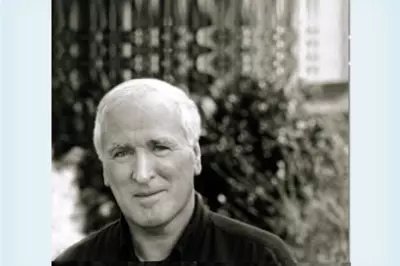The Consequences of Loneliness: Interview with James Lynch

James J. Lynch, Ph.D., a psychologist, researcher, and author, is a pioneer in the field of the health implications of human loneliness and social isolation. His three books on the topic include The Broken Heart: The Medical Consequences of Loneliness (1976), The Language of the Heart: The Human Body in Dialogue (1985) and A Cry Unheard: New Insights into the Medical Consequences of Loneliness (2000). He has also authored fifteen chapters in medical textbooks and over 100 articles in peer reviewed medical journals.
Can you briefly describe your area of expertise and background?
Lynch: I started working in this field in 1965 as a post-doc student at Johns Hopkins Medical School under W. Horsley Gantt, M.D., who was the last American student of Ivan Pavlov. We were essentially trying to create hypertension in animals to develop drugs to control high blood pressure (in humans). By accident, we started to notice the powerful effect humans had on these animals' cardiovascular system. We began to observe if you pet a dog, its blood pressure will drop fifty percent. And we began to see this effect throughout the animal kingdom, and we published a number of studies on it. But no one paid any attention to this, because it was the 1960s, when Dr. Christian Barnard performed the first heart transplant in South Africa. Which was, in essence, the culmination of the mechanistic model. It was the absolute pump as a heart!
From there, I eventually became a professor at the Maryland Medical School, where we asked this question: If human beings can affect the hearts of animals, can we affect other human being's hearts in similar ways? We began to monitor patients and watch them around the clock. What happened if a wife sat by the patient's bedside? What happened when a nurse took a patient's pulse? We began to see that even the most transient human contact had marked effects on heart rate and blood pressure. And we began to study patients in the trauma units who were in comas and couldn't move a muscle. We began to see that when you held a patient's hand, even in this acute state, there was an immediate heart rate reaction to the human touch.
That led to the next question: If transient contact between human beings has such an effect on the cardiovascular system, what does the long-term absence of human contact do to our hearts? Does human loneliness have an effect on our hearts?
How did you go about exploring this previously-ignored relationship between human feelings and health outcomes?
Lynch: 1970 was the first census year that marital status was taken into account on health surveys; prior to that it wasn't even considered an important variable. And when I looked at this data, I was shocked to see that single people in the United States, whether never married or widowed or divorced, had a 2-10 times higher death rate than married people. This was true of all ages, races, and both sexes, across the country.
The effects were very pronounced with heart disease. That's when I wrote and published my first book, The Broken Heart: The Medical Consequences of Loneliness, documenting this.
That book had quite a powerful effect on the national psyche back in the seventies. People kind of intuitively knew that loneliness had something to do with their health, but how do you go from loneliness to hypertension or stroke or cancer? What are the mechanisms?
It was then that we got the first automated blood pressure machine, which allowed us to talk to patients while studying their cardiovascular systems. We started to notice that talking had profound effects on blood pressure across the board. And at first it looked like a paradox that loneliness kills, but when you talk your blood pressure goes way up! And we began to see later on that it was the very people who had the largest pressure rises when they spoke that tended to withdraw from contact with people because of this unfelt stress.
Except for people with schizophrenia, everybody's blood pressure goes up when they speak. We began to look at babies crying, who double their blood pressure when they cry. We looked at children in schools, whose blood pressure goes up when they read. There's a linear equation across time that the older you are, the more your blood pressure goes up when you speak. Even people with hypertension experience this rise in blood pressure when they speak, and no medications block these effects.
So I spent the decade of the eighties observing the epidemiological extent of the phenomenon. We began to see that communication has a lot to do with the regulation of the cardiovascular system. We saw huge surges of blood pressure in heart patients when they would try to talk about emotionally provocative topics. And we began to understand over time that emotional catharsis - sort of "vomiting up" your feelings-can actually cause damage.
So how can we help these patients?
Lynch: We looked for treatment options for these patients. And we discovered there were two physiologies: a hydraulic machine physiology, and a communicative physiology, and we had to pay special attention to the specific communicative needs of patients if we were going to restore health. People can talk their way into heart disease, and we can help them talk their way out of it. We think that talking is mental, but when we speak to others, we're touching their hearts. So we need to pay attention to this.
If you look at the American Heart Association, they mandate in phase II cardiac rehabilitation that you pay attention to three things: exercise, diet and stress. But they never say what stress is. And the main stress is communicative stress… When you speak, your blood pressure rises, and when you listen, it falls.
What's the best thing people can do to improve or maintain their health?
Lynch: It's the separation from self, from the living world, that brings disease. We are our brother's keeper, so the best thing you can do is try to love. And the word is the only place that love resides.
What are some of the interesting things happening in this area of social isolation and loneliness research today?
Lynch: The most interesting thing is the development of a whole clinical model that is based on this information, and is used to help and treat coronary heart disease patients, and to look at how what we call the "hidden dialogue" can be used.
An example of this "hidden dialogue" is blushing. If I am chatting with you and I blush, you see it, and you may sense my discomfort and change the subject to one that is more comfortable, because you don't want to see me suffer, and you don't want to feel uncomfortable! My vascular change (in my face) is a message to you. But if I blush inside due to elevated blood pressure and you don't see it and I don't feel it, conversations quickly become murderous! I feel misunderstood and you feel misunderstood.
The body is a dialogic instrument; it's not a machine. The essential thesis we now have is that there is a communal body. The body isn't separate from the mind. We have a whole model now of using this research to help patients grasp why insight alone is never sufficient to help with diseases. We've shifted the whole notion of what it means to interact. The whole notion of catharsis puts people at great risk.
I am so excited about the spiritual implications (of communication). We're reversing the historical Darwinian/Cartesian/ Freudian ethic, which involves removing speech from the body. The whole notion of the word made flesh is what we're trying to drive toward, the incarnation. It's irrespective of what your religious perspective is. If you use the Christian model, the only word for God in the New Testament is "the word made flesh." Speaking with another person is really a dance with divinity.
Another spiritual implication is that in the 20th century, for the first time in history, we electronically removed the voice from the body (through technology). We're speaking from no place to nobody, and there are no feelings left.
Can you talk more about this modern technological "disembodiment" of the human voice, and the implications it has on our health?
Lynch: Here's a story. When my mother died, she was 94. She was a Gaelic-speaking woman from Ireland, in a very rural area. In her lifetime, her village lost its language. Her village existed for 5,000 years, and it was essentially Gaelic-speaking. When she was a child, every voice you heard had to be face to face. All music had to be sung. People in her town lived together and died together. It was by no means paradise, but there was strength in the tribe, and it eliminated loneliness. Her village had withstood famine, the Vikings, English persecution, and still retained its language. But when the (telephone) wires came to that village, it died. The wires lifted the voice from the flesh, so words lost their home.
That happens all the time now with technology. People speak from outside their bodies, so the words lack meaning. It becomes murderous! You have to bring people into their flesh to have any hope of a real relationship, and that's a spiritual journey.
How did you get interested in integrative medicine?
Lynch: I think I was dragged into it kicking and screaming, because I was a major mechanist! Even when I wrote The Broken Heart, showing that loneliness was a major contributor to heart disease, I still was looking at loneliness as "one more thing:" one pound of cholesterol, two pounds of salt, another pound of loneliness, and you get disease.
It took me a long time to move off of that Cartesian model, because I had no idea how deeply I had breathed it in and how it affected my thinking. The model is just there and it took a long time to totally change my view. Only now, later in life, am I really beginning to understand what the body is.
What's a common health-related mistake you see your patients or clients making, and how can they avoid it?
Lynch: The most common mistakes people make is to take their relationships for granted, and to accept the mechanistic model of disease. Every (heart) patient I see has just had stents put in, has just had surgery, and the whole model is hydraulic. When they first see me, they're angry at the cardiologist. Why do they have to see a shrink? Then when I show them how their blood pressure changes more when they talk than it did when they were on a treadmill, and how their blood pressure changes when they listen, they see the logic in it.
So the most common mistakes are to trivialize communication and to trivialize relationships. And especially to trivialize our relationship to the rest of the living world-animals, trees, and so on. I go nuts when I hear people say they've got to save nature, as if all humans aren't part of nature! We have to save ourselves. So there are very profound spiritual implications (of not communicating). I won't dance around the issue of spirituality. I think that's really the most important thing.
What is your next professional endeavor?
Lynch: I still see patients, and I am also writing a book called Speaking of Love. What does it mean to say "I love you?" Who is the I? What is love; what does that verb mean? Who are you? So I am trying to write a book on that.









